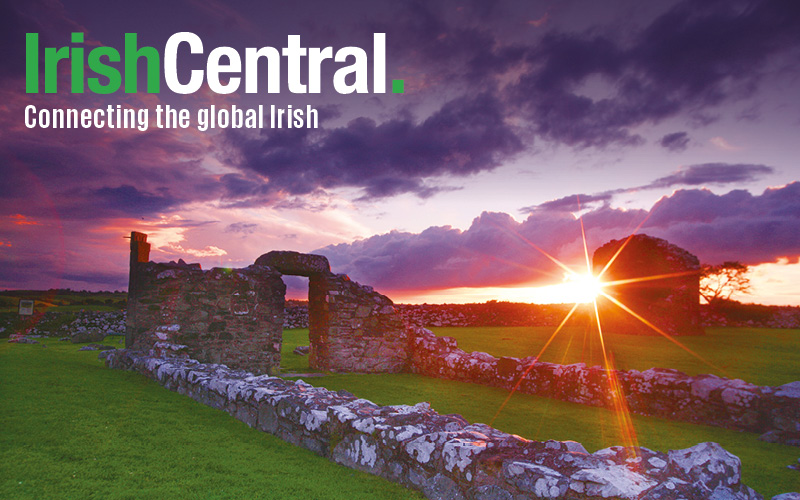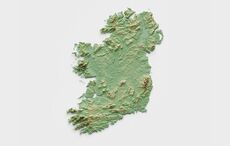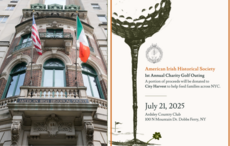The Montreal Irish community celebrates its proud Irish heritage this St. Patrick's Day parade
Montreal has one of North America’s oldest St. Patrick’s Day parades, certainly the oldest in Canada, held every year since 1824 (the oldest, by the way, is not New York 1762 or Boston 1737 but St. Augustine, Florida 1601). Montreal has been celebrating St. Patrick’s Day since 1759 (and if that date sounds familiar, it might be because Guinness first signed its famous 9,000-year lease and began brewing in Dublin in that year).
This year will be no different with the Parade returning to its old route on iconic St. Catherine Street. Up to 40% of Quebecers can trace their ancestry to the Emerald Isle.
This year’s parade will be without its long-time supporter, organizer and past president, Beverly Murphy, who passed away on March 8. According to the United Irish Society’s historian, Ken Quinn, “Bev was one of those people who could make you laugh and could easily laugh at herself. She was a warm and welcoming woman who wasn’t afraid to speak her mind.” She will be missed and she will be remembered.
One individual who will be there this year is Father John Walsh, named March 9 as the 42nd Irishman of the Year “for his decades of charitable work and efforts to foster dialogue between faiths and groups.” Only a month earlier, Walsh, a Catholic priest for more than 50 years, received his latest honor after he was invested as a member of the Order of Canada by Governor General Julie Payette at a ceremony in Ottawa on Feb. 1. Walsh is known for his work championing the cause of the homeless, overseeing two projects that serve the homeless population in Montreal.
Also in attendance will be this year’s St. Patrick’s Day Parade queen, Victoria Kelly and her court, princesses Lianne Short, Darragh Kilkenny-Mondoux, Lauren MacDonald and Aveen Mahon. Victoria is a Manager at Starbucks and a student in Concordia University’s School of Irish Studies. This year’s parade Grand Marshal is Canadian National Railway’s Executive vice-president Sean Finn and the Chief Reviewing Officer is comedian Joey Elias.
Irish Famine Walking Tour
Local historian, Donovan King will be conducting his annual Irish Famine Walking Tour to give both locals and tourists an idea of the struggles endured by Irish famine immigrants to Canada and Montreal and to learn about Black ’47, the year 75,000 Irish refugees fleeing the Famine landed on Montreal’s shores. The tour visits key sites associated with this tragedy, such as the locations of fever sheds, burial grounds, and hospitals, providing in-depth history about the Irish Famine's impact on Montreal in 1847.
Mr. King has recently succeeded, against great odds, in having a protest to acknowledge the indigenous history of Montreal by tourist guides recognized by the ITHQ (Institut de tourisme et d’hôtellerie du Québec) the body responsible for educating licensed tour guides in the city. The Institute has agreed to revise their mandatory tour guide curriculum to include more information on Montreal’s indigenous history. This is important not only in the context of acknowledging the original inhabitants of the Island of Montreal but it also recognizes the Mohawk people, who along with the Cherokee nation of the U.S. contributed cash in relief of the victims of the Great Famine in the mid-1800s. The Tour also supports efforts by the Irish Monument Park Foundation to establish a commemorative park on the gravesite of Irish Famine refugees.
The Memorial, known as the Black Rock is a monument built by laborers (mostly Irish) who, in the process of building the Victoria Bridge in 1859 accidentally uncovered the mass grave of over 6,000 Irish Famine refugees and caregivers who died of ‘ship fever’ in 1847. The workers refused to continue construction of the bridge until the victims were properly memorialized. The Black Rock was lifted from the bottom of the Lachine Canal and inscribed to the memory of those victims. In the 1970s the monument became isolated on a traffic meridian on the busy highway connecting the bridge to downtown Montreal.
The Black Rock Memorial Foundation has been working tirelessly for a suitable memorial site. In 2017, the site on which the memorial presently exists was purchased by Hydro Quebec with the purpose of developing an electrical substation. The worry was that the memorial would disappear as a consequence of the development. After many negotiations and consultations, Hydro Quebec has affirmed its commitment to creating a memorial park in conjunction with city of Montreal and in consultation with the Irish Community.
The Montreal Irish community continues to celebrate to remember and to thrive, remaining committed to both the remembrance of Irish things past and the future of the Irish in Canada.
Do you have St. Patrick's Day news you'd like to share with the global Irish community? Why not join IrishCentral's contributor's platform Irish Voices? Sign up here.
Looking for events in your community this St Patrick’s Day or to share further information on the March 17 celebrations in your area? Join our St Patrick’s Day 2019 group and celebrate St Patrick’s Day 2019 in proper Irish style.
This article was submitted to the IrishCentral contributors network by a member of the global Irish community. To become an IrishCentral contributor click here.




Comments